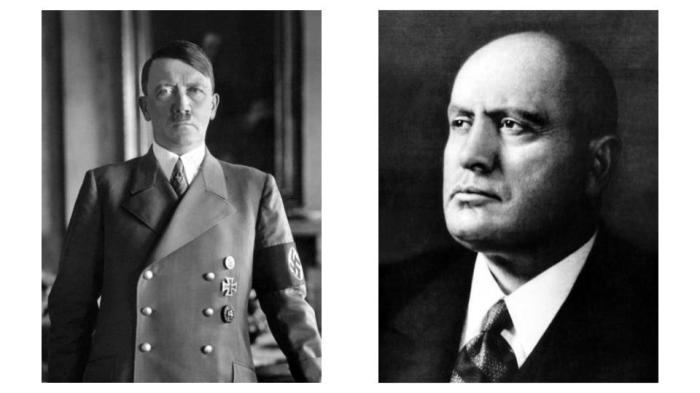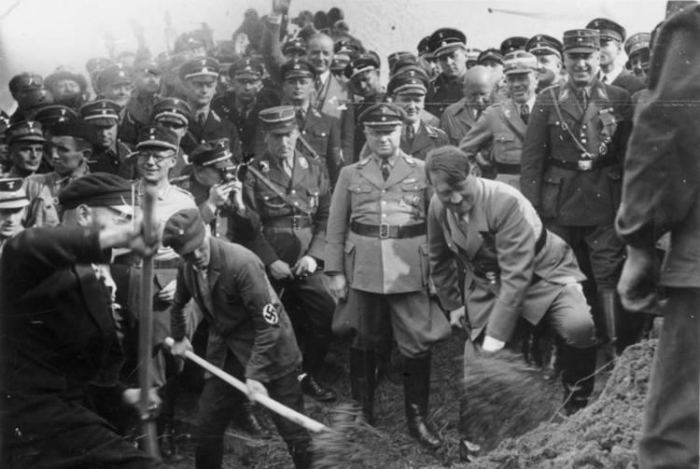Fascist corporatist economy ap world – Fascist corporatist economies, a topic steeped in historical significance, offer a compelling exploration into the interplay between political ideology and economic structures. This examination delves into the origins, characteristics, and legacy of these systems, providing insights into the ways in which fascism has shaped economic landscapes throughout history.
Corporatism, a central pillar of fascist economic thought, emerged as a means to consolidate power and control within the hands of the state. By forging alliances between government and industry, fascist regimes sought to eliminate class conflict and establish a harmonious economic order.
However, this pursuit of order often came at the expense of individual liberties and the free market principles that underpin capitalism.
Historical Context of Fascism and Corporatism: Fascist Corporatist Economy Ap World

Fascism is a radical right-wing political ideology that emphasizes the importance of the nation and the state, and rejects individualism and liberalism. Key tenets of fascism include: extreme nationalism, authoritarianism, and a belief in the superiority of one’s own race or culture.
Corporatism is an economic system in which the government plays a significant role in regulating the economy, often through collaboration with business and labor organizations. The origins of corporatism can be traced back to the late 19th century, when it was seen as a way to address the social and economic problems caused by industrialization.
Corporatism was used to support fascist regimes by providing a framework for economic control and social order. The state would typically establish corporatist organizations, which would bring together representatives from business, labor, and other sectors of society. These organizations would then work with the government to regulate the economy and resolve disputes.
Key Characteristics of a Fascist Corporatist Economy

The key characteristics of a fascist corporatist economy include:
Role of the State
- The state plays a central role in the economy, regulating all aspects of economic activity.
- The government establishes corporatist organizations to bring together representatives from business, labor, and other sectors of society.
- These organizations work with the government to develop economic policies and resolve disputes.
Relationship between Business and Government
- Business is closely tied to the government, and the government often provides support to businesses that are considered to be important to the national interest.
- In return, businesses are expected to support the government and its policies.
Impact on Labor and Social Welfare, Fascist corporatist economy ap world
- Corporatism often suppresses labor unions and other forms of worker organization.
- The government may also implement social welfare programs to provide a safety net for workers, but these programs are often designed to maintain social order rather than to promote social justice.
Examples of Fascist Corporatist Economies

Historical examples of countries that implemented fascist corporatist economies include:
Italy
- Under Benito Mussolini, Italy implemented a corporatist system that brought together representatives from business, labor, and other sectors of society.
- The government used this system to control the economy and suppress dissent.
Germany
- Under Adolf Hitler, Germany implemented a corporatist system that was used to control the economy and prepare for war.
- The government used this system to suppress labor unions and other forms of worker organization.
Spain
- Under Francisco Franco, Spain implemented a corporatist system that was used to control the economy and maintain social order.
- The government used this system to suppress labor unions and other forms of worker organization.
Comparison with Other Economic Systems
Fascist corporatist economies can be compared to other economic systems, such as capitalism and socialism:
Capitalism
- Capitalism is an economic system in which the means of production are privately owned and controlled.
- The government plays a limited role in the economy, and businesses are free to compete with each other.
Socialism
- Socialism is an economic system in which the means of production are owned and controlled by the government.
- The government plays a central role in the economy, and businesses are typically not allowed to compete with each other.
Fascist Corporatism
- Fascist corporatism is an economic system in which the government plays a central role in regulating the economy, often through collaboration with business and labor organizations.
- The government establishes corporatist organizations, which bring together representatives from business, labor, and other sectors of society.
- These organizations work with the government to regulate the economy and resolve disputes.
Legacy and Impact of Fascist Corporatist Economies
Fascist corporatist economies had a significant impact on the societies that implemented them:
Economic Impact
- Fascist corporatist economies often led to economic growth in the short term.
- However, they also led to economic instability and inequality in the long term.
Social Impact
- Fascist corporatist economies suppressed labor unions and other forms of worker organization.
- They also restricted individual freedom and promoted social conformity.
Political Impact
- Fascist corporatist economies helped to consolidate the power of fascist regimes.
- They also provided a framework for the implementation of authoritarian policies.
Questions and Answers
What is the primary goal of a fascist corporatist economy?
To establish a harmonious economic order by eliminating class conflict and consolidating power within the state.
How does corporatism differ from capitalism?
Corporatism emphasizes state control and cooperation between government and industry, while capitalism promotes free market principles and individual economic freedom.
What are some examples of countries that implemented fascist corporatist economies?
Italy under Mussolini, Germany under Hitler, and Spain under Franco are notable examples.